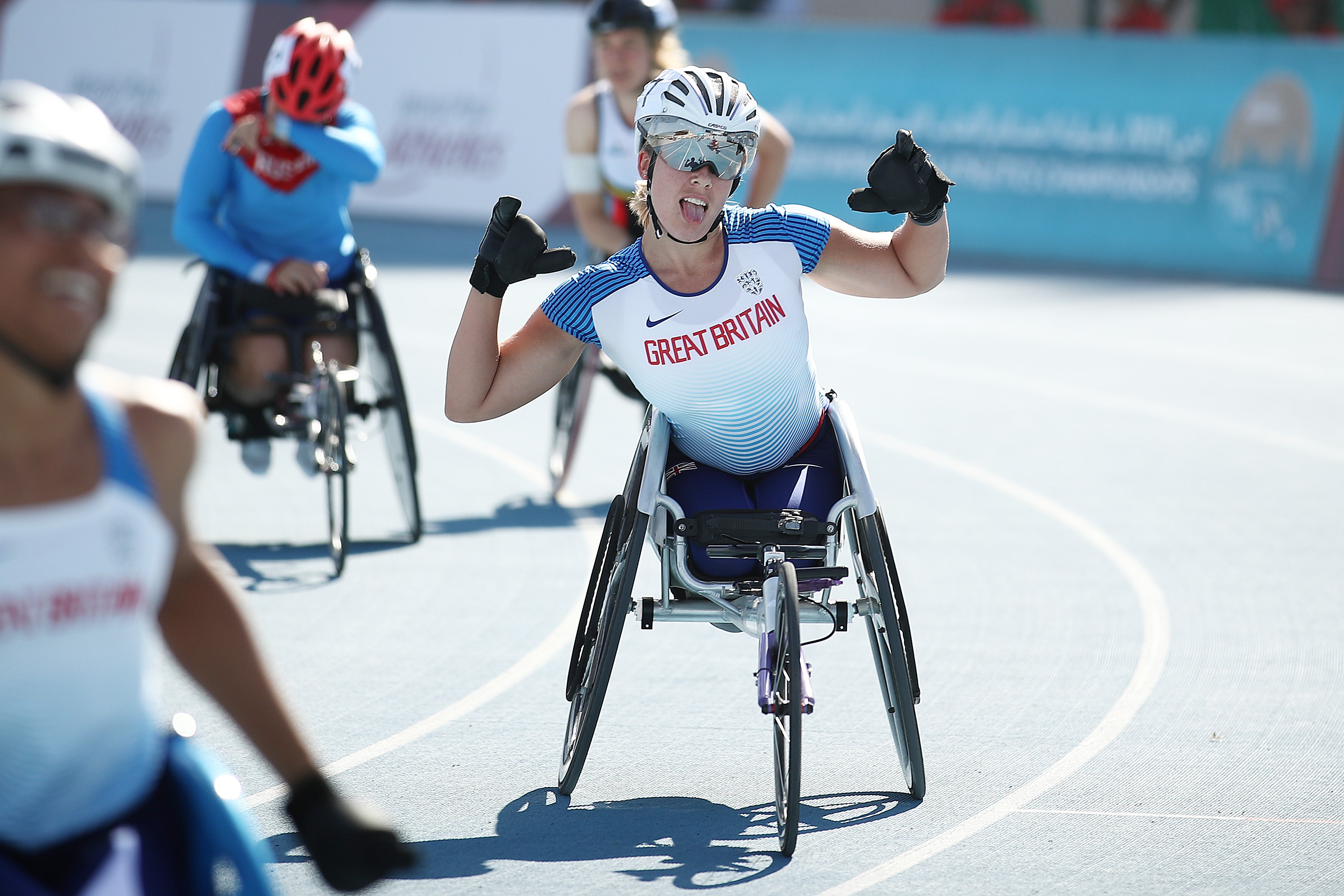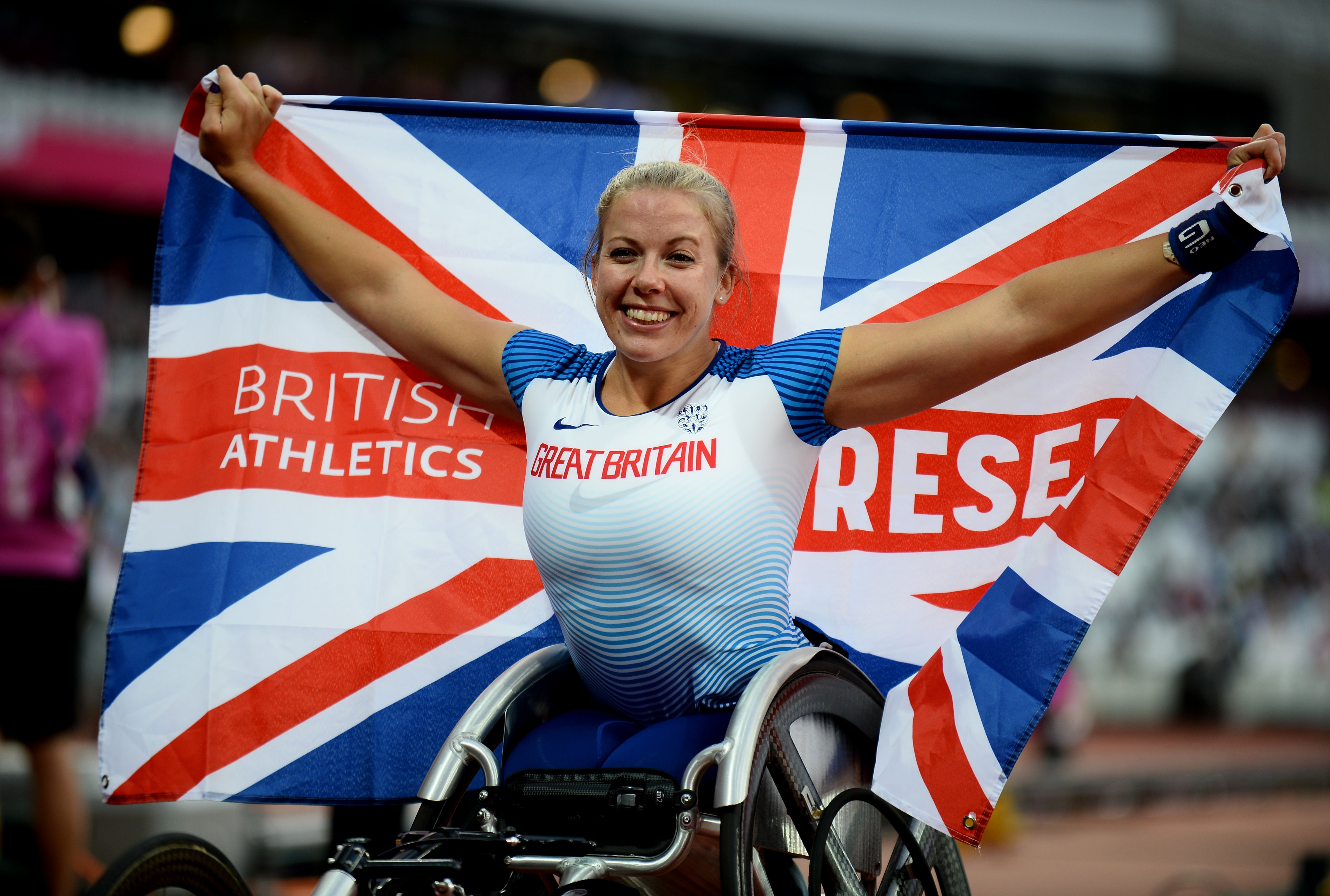‘When it goes right, it feels like flying’: Hannah Cockroft eyes more wheelchair racing history at Tokyo Paralympics
Interview: The GB racer broke three records in one day in May and expects more to tumble at the Games

Your support helps us to tell the story
From reproductive rights to climate change to Big Tech, The Independent is on the ground when the story is developing. Whether it's investigating the financials of Elon Musk's pro-Trump PAC or producing our latest documentary, 'The A Word', which shines a light on the American women fighting for reproductive rights, we know how important it is to parse out the facts from the messaging.
At such a critical moment in US history, we need reporters on the ground. Your donation allows us to keep sending journalists to speak to both sides of the story.
The Independent is trusted by Americans across the entire political spectrum. And unlike many other quality news outlets, we choose not to lock Americans out of our reporting and analysis with paywalls. We believe quality journalism should be available to everyone, paid for by those who can afford it.
Your support makes all the difference.Hannah Cockroft’s hotel room in Tokyo looks out on a theme park, with rollercoasters and log flumes, tantalisingly out of reach for the Paralympic thrill seeker.
The challenge for Cockroft is simple – get her kicks from going fast on the track.
“When it goes right, it feels like flying,” said the five-time Paralympic champion.
Whenever the 29-year-old races, history is made. She broke three wheelchair racing world records in a day in May, meaning she holds all five from 100m up to 1500m.
Cockroft’s wheels had barely touched Tokyo tarmac before she was breaking new ground in training, suggesting her own T34 records are under threat over 100m and 800m.
“I hit a new top speed on the track the other day,” said Cockroft, who recorded 20.2mph.
“That’s a massive confidence boost. Nathan [Maguire, partner and fellow wheelchair racer] and I train together every day and I’m getting closer and closer to beating him.”
In a parallel universe, Cockroft became the first British athlete to race at the Olympic Stadium in 2019, alongside Usain Bolt at a grand opening in front of a 60,000 crowd.
The Tokyo track is one of the fastest in the world – you only needed to watch one session of the Olympics to work that out.
“It’s an incredible track,” said Cockroft. “It will be empty, which is sad, but I think we’re going to see some really fast times for wheelchair racing. Hopefully they’re mine but if not mine, someone else’s.
“I expect records to tumble everywhere. People have used the extra year’s training to their advantage, so we’re going to see some amazing, amazing things.”

Times are one thing, but this quick-witted west Yorkshire native has medals on the mind. Defending her Paralympic 100m and 800m titles are the priorities.
“My old coach once said to me that everyone remembers medals, no one remembers times,” she said.
“I always try to remember that it’s so easy to get caught up in wanting to get to a specific time. You just need to let the process happen.
“What I’m here for is the gold medals. I’ve spent all year doing rapid times and breaking world records, so that job has been done. I just want to get that ribbon around my neck now and get on that podium.”
Only one T34 racer has ever beaten Cockroft – her long-time rival and compatriot Kare Adenegan, who has done it three times and will loom large again in Tokyo.
Indeed, there is a live chance of a British podium sweep in the 100m, with Paralympic debutant Fabienne Andrew fancied for a medal.
Cockroft said: “I think it’s fantastic, it’s awesome we’re bringing through such strong girls. Kare and I have had a rivalry for quite a few years now, that’s nothing new. Fabs is still new on the scene.
“Hopefully it inspires other nations to bring their own girls through, so we can beat them all.”

For a sponsor, Cockroft seems the full package. She has an appearance on Celebrity Bake Off under her belt and has made early forays into football punditry with BT Sport at the recent FA Disability Cup.
But no kit sponsor has ever offered her an individual deal and T38 sprinter Sophie Hahn, signed to Nike, is one of precious few para-athletes to have one.
To say the situation sticks in Cockroft’s craw is an understatement.
“It’s pretty frustrating,” she said. “For me, having a kit sponsor is the epitome of being an athlete. It’s the thing you want and I still don’t have it.
“We are slowly inspiring more and more young people into the sport, but it’s hard if they don’t have an incentive. It’s very frustrating and it’s a battle we keep having fighting.
“I’ve come to realise that a kit deal doesn’t make an athlete, we can still make people love our sport whatever we’re wearing.”
No one does more to support our Olympic and Paralympic athletes than National Lottery players, who raise around £36m each week for good causes including grassroots and elite sport. Discover the positive impact playing the National Lottery has at lotterygoodcauses.org.uk and get involved by using the hashtags: #TNLAthletes
Join our commenting forum
Join thought-provoking conversations, follow other Independent readers and see their replies
Comments